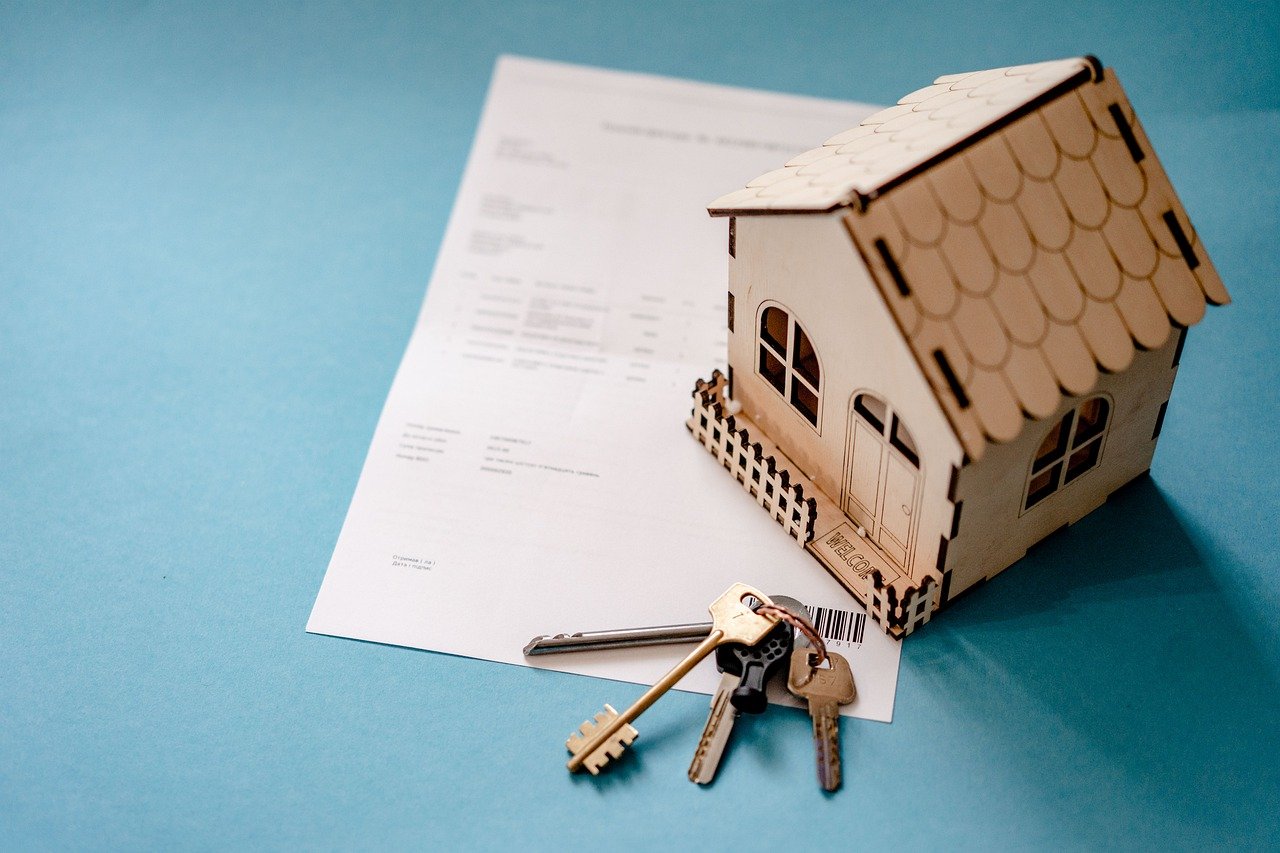Have you ever experienced being denied a loan for a property you wanted to buy? If so, was it because you did not meet the minimum qualifications?
Scenarios like the one mentioned are common in the financial world. It is also one reason why purchase money mortgages exist – to address the problem of poor credit ratings.
A purchase money mortgage is unique and carries benefits, and significant risks. This article aims to help you understand it on a deeper level.

Purchase Money Mortgage Defined
A purchase money mortgage is usually used in real estate transactions in which the buyer has had trouble receiving a loan from a standard lender to help finance the acquisition.
The property’s seller directly provides this mortgage to the buyer.
For example, to buy a family home valued at $120,000, the buyer can pay $30,000 upfront, and the remaining $90,000 can be financed by a purchase money mortgage. It usually bears interest and other agreed-upon terms and conditions similar to other loans.
In the example above, the $30,000 cash paid serves as the initial or down payment for the mortgage which will cover the balance on an installment basis.
How Does it Work
Essentially, a purchase money mortgage allows the seller and the buyer to avoid dealing with the bank by having the seller serve as the lender. As previously established in the definition, it is used primarily by buyers who have trouble qualifying for a bank loan.
Because the seller of the property does a similar function to a bank, they have the right to decide on the interest rate applied, the amount of the downpayment, and the closing requirements for the mortgage.
The buyer and seller must also reach a consensus about the payment schedule. This way, both parties are confident that the mortgage transaction is free from default risk.
Legal Protection for the Seller and Buyer of the Property
Although the deal between the seller and buyer can pose some significant risks to both parties, legal provisions are in place to protect them. Like a traditional mortgage, a formal and legal financial document is recorded and sealed to safeguard their rights.
The laws and regulations concerning this matter also vary from state to state. To avoid any confusion and to process all documentation needed to be established, it is recommended for the parties to get a lawyer or at least consult with one.
When will the Buyer Receive the Property Title
While receiving the total amount of the real property’s selling price and other related costs is the end goal for the sellers, receiving the title of the real property is the main goal for you as the buyer.
The when and how the property title will be transferred to you, as the buyer, depends on the type of purchase-money mortgage you choose, which will be discussed later in the article.
If it is a land contract, the land title transfer will not be transferred immediately after you settle the mortgage. Instead, the final payment to complete the purchase money mortgage should be settled first.
If it is a lease-purchase agreement, you will be given an equitable title. But to achieve it, you have to buy the property at the end of the lease contract, which is required, so you, as the buyer, have no choice as per the binding agreement.
Real Property Appraisal as a Requirement
Lenders typically need an appraisal on the home being purchased, but if the transaction is between the buyer and seller directly, it may not be necessary. Regardless, an appraisal is advised to be certain of the home’s value, so the seller has the freedom to do it.

Comparison With a Hard Money Loan
A hard money loan is often described as a last resort loan. It is also utilized for real estate transactions. Looking at the bigger picture, there are more similarities observed between a hard money loan and a purchase money mortgage.
Like a purchase money mortgage, the loan provider will not be the bank but an individual or a business. In addition to this, this type of loan does not also require a satisfactory credit history and rating. With a weak credit rating, you may still get the loan.
With a hard money loan, the house also serves as collateral, just like a mortgage. It serves as a safeguard for an individual or business against default risk. Default risk pertains to the risk that an individual may not pay at all for the remaining loans.
The key takeaway is that hard money loans do not have significant differences from a purchase money mortgage. Like seller financing, the conditions of hard money loans are determined by the collateral and its value, rather than the borrower’s creditworthiness.
Prices Compared
Loans secured by hard money are costly, just like a purchase money mortgage. The interest rates typically start at 12 percent up to 20 percent. On top of this, there are also substantial upfront fees to be considered.
Comparison With a Traditional Mortgage
Unlike a hard money loan, a purchase-money mortgage is entirely different from a traditional mortgage.
Rather than getting a mortgage from a bank, the buyer pays a down payment to the seller and delivers a financing document as proof of the loan. The security device is recorded in public records in most cases, protecting both parties from future disputes.
Nevertheless, there are various alternatives to traditional mortgages to consider if you don’t want to incur the risk of using a purchase-money or hard-money loan. This includes conventional loans, Federal Housing Administration (FHA) loans, and VA loans.
There’s one general observation with all these choices – each of these types of loans and mortgage has slightly different restrictions and requirements for the buyer. So if you are considering taking one on, do your homework to figure out which one is best for you.
Types of Purchase Money Mortgage

What is a purchase money mortgage? As a refresher, it is typically a loan option for people whose chances of qualifying for a traditional mortgage are low. This situation can occur due to a bad credit score, an unfavorable debt-to-income (DTI) ratio, or a lack of a down payment.
Since a purchase money mortgage is suitable for those facing challenges, it is more lenient than a standard bank loan. The property seller is the one who determines the down payment to be paid by the buyer – making it similar to non-conforming loans.
However, there are several different types of purchase money mortgages each being a less conventional and more flexible loan. Here is a quick rundown of the types of purchase money mortgage:
Land Contract
Contracts are written agreements between parties. In a land contract, that agreement is between a seller and a property buyer. The property may vary from vacant land or residential homes to commercial buildings.
The buyer and the seller should establish and agree to the terms before entering an agreement. These should include the purchase price, the down payment, the payment schedule, and the interest rate.
It may be similar to a regular bank mortgage as it is also a type of home financing. However, instead of borrowing money from the bank to pay off a real estate property, the buyer directly pays the seller or the owner until the agreed price is fully paid.
At the maturity of the lease agreement, the property’s deed is transferred.
Lease-Purchase Agreement
A lease-purchase agreement is a rent-to-own contract between a landlord and a tenant. Renting-to-own deals entail that one party, the buyer, rents the property for a specified period, and eventually, they have the right to own it.
In this kind of purchase money mortgage, there is an option fee. This fee represents the right of the renter to have exclusive ownership of the property by buying it. This option or upfront fee is nonrefundable.
Unlike a standard rental contract, a lease-purchase agreement comes with a higher rent than the fair market price. The rent is more expensive because a part of it is allotted for the down payment of the property.
At the end of the lease agreement or the document specifying the rental terms, the down payment is used to start purchasing the real estate and gain complete ownership of it – buying is required at the end of the period.
Lease Option Agreement
A lease option agreement poses similarities with a lease-purchase deal. Both are similar to option fees. Moreover, both agreements bar the seller from offering the property to someone else within the agreed-upon lease term.
However, this does not require the tenant to own the property. At the end of the lease term, the other party can either progress to purchasing the property or let go of it. Hence, the tenant has options – making it more flexible than a lease-purchase agreement.
One of the reasons tenants or buyers enter this type of agreement is that it gives them the benefit of potentially owning a property at today’s price or current market value – however, there is an upfront fee.
The fee is a premium added to a tenant’s monthly rent in lease option agreements. This charge is used as a tradeoff for the owner or seller. This is because they are sacrificing the sale of the property at a higher price in the future.
Thus, if the tenant foregoes their option to purchase the property at the end of the agreement, the additional premium is forfeited.
Assumed Mortgage with A Purchase Money Mortgage
In an assumable mortgage, the buyer takes over the seller’s existing mortgage. This means that the property is not fully paid for as yet. So, what happens is that the buyer covers the remaining payments, supposedly made by the seller, at the same rates.
Assuming the seller’s mortgage is generally different from a purchase money mortgage, they vary in terms and interest rates. Under the lender’s conditions, the buyer must be qualified to purchase with an assumed mortgage.
However, a single mortgage may combine the two. Once the seller’s lender approves the buyer, they will then assume the remaining mortgage balance under the current terms agreed by the lender and the previous owner – or the seller.

Advantages and Disadvantages
Unlike standard bank loans, a purchase money mortgage adheres to fewer rules and regulations. Thus, people who want to purchase or invest in a property, but are not qualified due to bad credit scores or DTI, would usually opt for a purchase money mortgage.
This type of mortgage offers more accessible property financing, but that does not mean it is full-proof. A purchase money mortgage has its upsides and downsides.
For Buyers
Advantages
Swift and Inexpensive Closing. The involved parties are reduced. No banks, underwriters, or other departments are part of the transaction. Thus, there is no need to pay for costs, such as appraisal charges or bank fees.
Negotiable Down Payments. Unlike bank loans with a minimum down payment, purchase money mortgages are more flexible. The seller and the buyer may negotiate an affordable deal for both parties.
Fairly Lax Policies. A purchase money mortgage is often used as an alternative to conventional bank loans, for it is easier to qualify for it. Buyers who have unfavorable credit scores or debt ratios are typically subject to fewer restrictions under this type of mortgage.
Disadvantages
Higher Rates. Additional premiums or higher interest rates protect the seller or the property owner from potential risks. These risks are like those carried by banks on standard loans.
Due-On-Sale Clause and Foreclosure Risk. Some properties are still being paid for by the seller – with a remaining balance. Most of these come with due-on-sale clauses. This means that if the bank or any lender fails to receive payments, they have the right to foreclose on the property.
For Sellers
Advantages
“As-Is” Selling. The property is sold “as-is.” This term means that, as a seller, you can skip the costly repair costs, especially if there are little to no improvements needed. However, bear in mind that your property might be less attractive to picky buyers.
Title Holding. The title is not transferred to the buyer unless the total purchase price has been paid. So, if the buyer fails to pay or defaults, you get to keep the previous payments and the property itself as a seller.
Higher Return. A property on a purchase money mortgage is a good investment for the seller because they can charge higher rates and premiums. You may charge above-market interest rates. The return on investment is also faster because the transaction is direct.
Disadvantages
Default Risk. There may be instances when the buyer fails or stops paying for the property. This is called a default risk. Default payments may lead you to go through the hassle of the foreclosure process.
Constant Monitoring. Due diligence is required for a successful transaction. As the seller, you have to constantly check up on the buyer to ensure that they will make timely payments on your property.
Conclusion
Conventional bank loans come with strict rules and regulations. These policies are typically the reason why some individuals are not able to invest in real estate.
If they have a low credit score or unfavorable debt-to-income ratio, they are denied lending. Thus, alternatives, like purchase money mortgages, exist to make owning real estate properties more accessible and affordable. Deciding on what properties and deals to consider should not be a complex process as long as you have the right resources.
Consult with real estate professionals and brokerage firms, like Ardor Homes Massachusetts, to help you get the best deals. This can save you time doing research on the technicalities, process, terms and conditions and most of all, it will reduce your worries and risks should you decide to go into this type of real estate financing. Ardor Homes Massachusetts can provide professional guidance, and help to assess the pros and cons of the different types of mortgages. That way, you get to make sure that you maximize your potential returns.

In her 25-year career, Steph Wilkinson has been involved in the acquisition, marketing and sales of over $3 Billion dollars of residential real estate. A number of years ago, Steph transitioned into Brokerage Leadership for National real estate brands and tech start-ups. She has served as a Business Strategist for real estate agents and brokerages alike and is also a real estate coach and trainer. In her new role with the Iconic Team, Steph will be responsible for the growth of the team and will be working with all of our agents to increase their productivity and bottom line.




